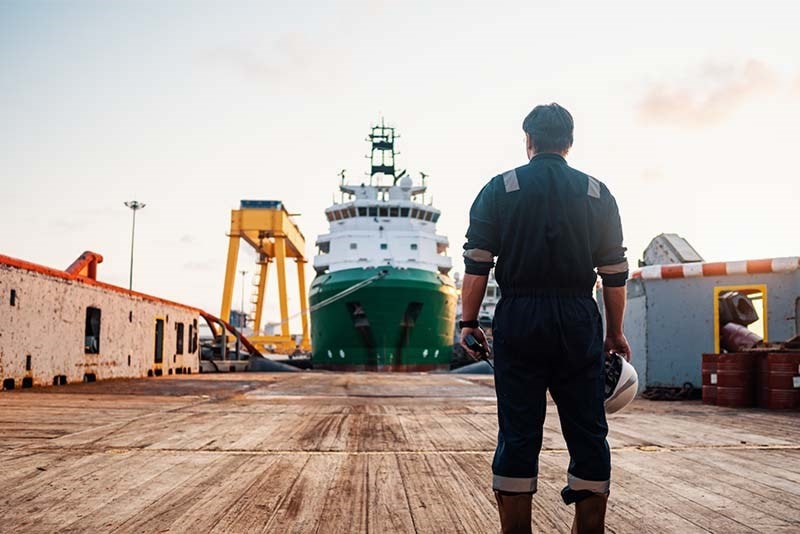It’s time for a wellbeing-first approach to casualty investigation

There has been an increasing recognition of crew welfare issues across the industry. However, the broader risks associated with these issues are often less widely understood. The consequences of inaction could be wide reaching and dire.
At its conference in September 2021, the International Union of Marine
Insurance (IUMI) reported that it had seen evidence that the number of near-miss shipping incidents is increasing as a result of seafarer stress, anxiety and fatigue. This is a particularly worrying finding for those of us who deal in risks – and mitigating them.
Stresses and critical incidents can have a dramatic impact

Post-casualty investigations
A key role of the post-casualty investigation is to analyse what went wrong and develop a solution
so that it doesn’t happen again. Yet, repeatedly, the role of stress, fatigue and mental health is not recognised as an issue and learnt from
Ordinary post-casualty interviews tend only to focus on damage to physical assets and injuries, and do not account for this emotional trauma, or the high-stress environment where seafarers are naturally left to worry about blame, responsibilities and outcomes. This can mean that interviews might not yield sufficient, high-quality post-incident information and evidence as shipowners, insurers and other stakeholders would hope. It can also create more stress for a seafarer already coping with the effects of trauma.
All stakeholders will benefit from assessments of casualty severity placing more emphasis on understanding seafarers’ mental health, well-being and how they have been affected by a casualty or serious incident at sea. This can be achieved by adapting approaches to ensure that interview processes gather the best information while protecting the wellbeing of mariners and signposting them to appropriate support.
Moreover, the prevention of future casualties can be enhanced by addressing the trauma of prior incidents. A key role of the post-casualty investigation is to analyse what went wrong and develop a solution so that it doesn’t happen again. Yet, repeatedly, the role of stress, fatigue and mental health is not recognised as an issue and learnt from. So, how can we improve post-casualty investigations?